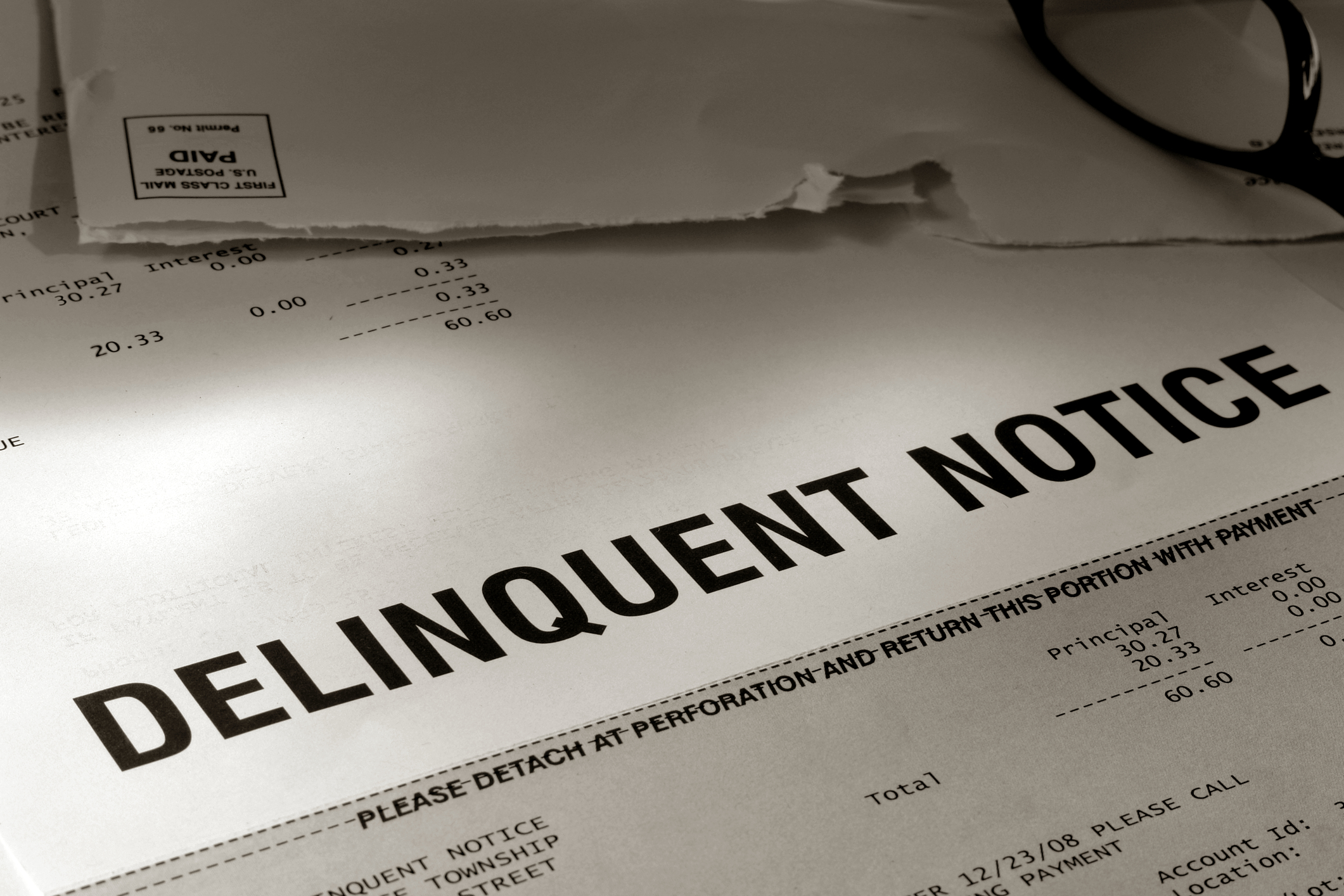Delinquent Tax Filing Procedures

What Happens If You Forgot to File Your Forms?
There are options for filing delinquent tax forms that could be easier and less financially painful than you think. Congress has given the IRS large weapons, with a wide array of huge delinquency penalties. However, they would rather coax taxpayers into compliance by using the carrot approach.
We will briefly explain the three programs the IRS currently offers to help taxpayers get caught up:
- Streamlined Filing Procedure
- Delinquent FBAR Submission Procedures
- Delinquent International Information Return Submission Procedures
For additional information, see Options Available for U.S. Taxpayers.
Streamlined Filing Compliance Procedures
The IRS created the original streamlined procedure in 2012. This program was only offered to taxpayers living outside the United States who qualified for the foreign-earned income exclusion. It was then further restricted to taxpayers with unreported income of $1,500 or less.
In June 2014, the IRS relaxed and expanded the streamlined procedure to apply to all non-willfully delinquent taxpayers. The new streamlined programs allow taxpayers, living either in the U.S. or abroad, who failed to disclose their foreign accounts and report their foreign income, to become fully compliant at a much lower cost than entering the now-closed Offshore Voluntary Disclosure Program (OVDP).
There are now two streamlined procedures. Taxpayers qualifying for the foreign offshore procedures face no penalties at all, while a 5% of the highest balance penalty is offered to participants living in the United States who qualify for the domestic offshore procedures.
There is no longer an unreported tax threshold (formerly $1,500) that could restrict hopeful entrants from the program, so participants do not need to worry about being rejected if they have substantial foreign income to report. Under the old program, there was also an applicant risk assessment process, however, that is now gone.
For an overview, see Your Unfiled FBARs, Coming Clean Could Be Much Easier Than You Think.
General Requirements
The modified streamlined filing compliance procedures are designed only for individual taxpayers and estates of individual taxpayers. The program for taxpayers living in the United States is called the Streamlined Domestic Offshore Procedures, and the program for expats is called the Streamlined Foreign Offshore Procedures.
Under both programs, taxpayers are required to certify that the failure to report all income, pay all taxes, and submit all required information returns, including FBARs (FinCEN Form 114) was due to "non-willful" conduct.
The IRS defines this conduct as conduct "due to negligence, inadvertence, or mistake, or conduct that is the result of a good faith misunderstanding of the requirements of the law" (IR-2014-73).
Willful vs. Non-Willful
The IRS definition of non-willful covers a lot of territory. Negligence, for example, includes "any failure to make a reasonable attempt to comply with the provisions of the Code" (IRC Sec. 6662(c)) or "to exercise ordinary and reasonable care in the preparation of a tax return" (Reg. Sec. 1.6662-3(b)(1)).
Further, "negligence is a lack of due care in failing to do what a reasonable and ordinarily prudent person would have done under the particular circumstances." (Kelly, Paul J., (1970) TC Memo 1970-250). The court also stated that a person may be guilty of negligence even though he is not guilty of bad faith.
So the fact that you ignored the FBAR filing requirements for many years, and failed to report your foreign income, might be negligent behavior, but it's probably not willful. That means you likely qualify for one of the new streamlined procedures. On the other hand, if you loaded piles of cash into a suitcase and lugged it over to Switzerland to conceal it from the IRS, you don't qualify, because that is willful conduct.
If you believe your behavior may have been willful under these guidelines, consult with an attorney before submitting returns through one of the streamlined procedures. We work with attorneys who are experts in this field and we would be happy to provide a referral, free of charge or obligation.
Civil Examination
If the IRS has initiated an audit of your tax returns for any taxable year, regardless of whether the examination relates to undisclosed foreign financial assets, you will not be eligible to use the streamlined procedures. If you are under examination you should consult with your agent about this. Additionally, you are ineligible if you are under criminal investigation.
Previously Filed Delinquent Tax Returns
If you are eligible to use the streamlined procedures but have previously filed delinquent or amended returns in an attempt to address US tax and information reporting obligations with respect to your foreign accounts ("quiet disclosure"), you may still use the streamlined procedures. However, any penalties previously assessed concerning those filings will not be abated.
Valid Taxpayer Identification Number Required
All returns submitted under the streamlined procedures must have valid Taxpayer Identification Numbers. This means a valid Social Security number, or if you are not eligible for an SSN, an Individual Taxpayer Identification Number (ITIN) issued by the IRS. If you are not eligible for a Social Security number and do not have an ITIN, the ITIN can be applied for with the streamlined submission.

General Treatment Under Both Offshore and Domestic Procedures
Tax returns submitted under either procedure will be processed like any other returns. You will not be sent an acknowledgment of receipt and will not be asked to sign a closing agreement, as these procedures are not an amnesty program. So, while your returns will not be subject to IRS audit automatically, they may be selected for audit under the normal audit selection process. The accuracy and completeness of submissions might be checked against information received from foreign banks, financial advisors, and other sources. Therefore, it is possible that your returns might be subject to IRS examination, additional civil penalties, and even criminal liability, if appropriate.
Qualifying For the Foreign Offshore Procedures
The foreign offshore procedures allow you to become compliant penalty-free, so this is the preferred process over the domestic offshore procedures. If you fail to qualify for this process and you have unreported income, the domestic offshore procedures might be your next option. In addition to meeting the general eligibility requirements, to use the Streamlined Foreign Offshore Procedures you must also satisfy the following requirements:
- You must meet the non-residency requirement described below. If filing jointly, both spouses must meet the non-residency requirement for at least one of the most recent three calendar years for which the due date has passed
- You must have failed to report the income from a foreign financial asset and pay the required tax, and may (not must) have failed to file an FBAR (FinCEN Form 114) and/or one or more international information returns (Forms 3520, 3520-A, 5471, 5472, 8938, 926, 8621, etc). In other words, an international information return that was required to be filed may be filed as part of this streamlined submission, but a delinquent international information form is not a requirement to qualify. If all international information returns have been filed, but gross income from foreign accounts has been omitted, this streamlined program is available
- These failures must have resulted from non-willful conduct, as defined above, and you must complete and sign a statement attached to Form 14653 certifying that
Nonresidency Requirements for US Citizens and Green Card Holders
This requirement is met if you are a US citizen or permanent resident, (or the estate thereof), in any one or more of the most recent three years for which the US tax return due date (or properly extended due date) has passed, did not have a US abode, and was physically outside the United States for at least 330 full days.
This means that even if you were living in the United States for two of these years, you still qualify if you meet the 330-day test in the third year. These criteria mean that you will meet the tests for the foreign earned income exclusion in the year or years of absence from the United States.
Nonresidency Requirement for Foreign National Visa Holders
If you are a foreign national who is not a permanent resident, you must meet the substantial presence test to be considered a resident of the United States for tax purposes. If you are not considered a resident, you are generally not subject to the FBAR filing requirements. A foreign national who does not meet the substantial presence test for one or more of the most recent three years for which the US tax return due date (or properly applied for extended due date) has passed meets the non-residency requirement.
For more information on the substantial presence test, see Determining Your Residency Status in U.S. Tax Guide for Foreign Nationals.
If you are eligible to use the Streamlined Foreign Offshore Procedures and comply with the filing instructions, you will not be subject to failure-to-file and failure-to-pay penalties, accuracy-related penalties, information return penalties, or FBAR penalties.
However, your returns could still be selected for audit under the normal audit selection process. If the IRS determines an additional tax deficiency for a return submitted under these procedures, the IRS may assert applicable additions to tax and penalties relating to that additional deficiency.
What You Must Do
The procedures are to:
- File delinquent or amended tax returns, together with all required information returns (e.g., Forms 3520, 3520-A, 5471, 8938, and 8621) for each of the most recent three years for which the US tax return due date (or properly applied for extended due date) has passed
- For each of the most recent six years for which the FBAR due date has passed, file any delinquent FBAR
- Complete and sign a statement on Form 14653 certifying that you are eligible for the Streamlined Foreign Offshore Procedures, that all required FBARs have now been filed, and that your failure to fully comply with US tax laws resulted from non-willful conduct. The full amount of the tax and interest due in connection with these filings must be remitted with the streamlined submission

Qualifying for the Domestic Offshore Procedures
- You must have previously filed a US tax return (if required) for each of the most recent three years for which the US tax return due date (or properly extended due date) has passed. (Note that this is not a requirement for using the foreign offshore procedures)
- You must have failed to report gross income from a foreign financial asset and pay tax as a result of this failure. If no gross income has been omitted, you are not a candidate for these procedures but may benefit from the delinquent FBAR submission procedures or the delinquent international information return submission procedures, as described below
- You may (not must) have failed to file an FBAR and/or one or more international information returns, such as Forms 3520, 3520-A, 5471, 8938, 926, and 8621. In other words, an international information return that was required to be filed may be filed as part of this streamlined submission, but a delinquent international information form is not a requirement to qualify. If all international information returns have been filed, but gross income from foreign accounts has been omitted, this streamlined program is available
- These failures must have resulted from non-willful conduct, as defined above, and you must complete and sign a statement attached to Form 14654 certifying that
If you qualify for the domestic procedures, and comply with the filing instructions, like taxpayers filing under the foreign offshore procedures, you will not be subject to failure-to-file and failure-to-pay penalties, accuracy-related penalties, information return penalties, or FBAR penalties. However, you will be on the hook for a Title 26 miscellaneous offshore penalty (explained below).
What You Must Do
The main procedures are to:
- Submit complete and accurate amended tax returns, together with all required information returns (e.g., Forms 3520, 3520-A, 5471, 5472, 8938, 926, and 8621), for each of the most recent three years for which the US tax return due date (or properly applied for extended due date) has passed
- For each of the most recent six years for which the FBAR due date has passed, file any delinquent FBARs
- Complete and sign a statement on Form 14654 certifying that you are eligible for the Streamlined Domestic Offshore Procedures, that all required FBARs have now been filed, that your computation of the miscellaneous offshore penalty (which you will show on Form 14654) is accurate, and that your failure to fully comply with US tax laws resulted from non-willful conduct. The full amount of the tax, interest, and miscellaneous offshore penalty due in connection with these filings must be remitted with the streamlined submission.
The Miscellaneous Offshore Penalty
This is a rather arbitrary penalty, imposed on only those taxpayers who fail to meet the non-residency requirements. The IRS rationale is that taxpayers residing in the United States should have been aware of their filing requirements and are therefore deserving of a penalty. However, the penalty is only a small fraction of the penalties the IRS is statutorily authorized to impose (and that was imposed through the OVDP programs).
The Title 26 miscellaneous offshore penalty is equal to 5% of the highest aggregate balance/value of your foreign financial assets that should have been, but were not, reported on an FBAR or Form 8938. Alternatively, they were properly reported, but gross income concerning the assets was not reported on a return submitted under the streamlined procedures.
The penalty is computed by taking the highest aggregate balance/value determined by aggregating the year-end account balances and year-end asset values of all the financial assets subject to the penalty for each of the years in the covered periods and selecting the highest aggregate balance/value from among those years.
Delinquent FBAR Submission Procedures
If you do not need to use the Streamlined Filing Compliance Procedures to file delinquent or amended tax returns to report and pay additional tax, but:
- You have not filed a required Report of Foreign Bank and Financial Accounts (FBAR) (FinCEN Form 114),
- You are not under a civil examination or criminal investigation by the IRS, and
- You have not already been contacted by the IRS about the delinquent FBARs,
You should simply file the delinquent FBARs according to the FBAR instructions. When you do so, you should include a statement explaining why you are filing the FBARs late, and on the cover page of the electronic form, select a reason for filing late.
The IRS will not impose a penalty for the failure to file the delinquent FBARs if you properly reported, and paid all the tax on, income from the foreign financial accounts reported on the delinquent FBARs. The FBARs will not be automatically subject to audit but may be selected through the normal audit procedure.

Delinquent International Information Return Submission Procedures
What is Reasonable Cause?
The IRS will not tell us precisely what constitutes reasonable cause in its determination. This is a question determined purely by facts and circumstances. However, the IRS does give some clues. For example, Treas. Reg. Section 1.6038A-4(b)(2) provides:
The determination of whether a taxpayer acted with reasonable cause and in good faith is made on a case-by-case basis, taking into account all pertinent facts and circumstances. Circumstances that may indicate reasonable cause and good faith include an honest misunderstanding of fact or law that is reasonable in light of the experience and knowledge of the taxpayer. Isolated computational or transcriptional errors generally are not inconsistent with reasonable cause and good faith. Reliance upon an information return or on the advice of a professional (such as an attorney or accountant) does not necessarily demonstrate reasonable cause and good faith. Similarly, reasonable cause and good faith is not necessarily indicated by reliance on facts that, unknown to the taxpayer, are incorrect. Reliance on an information return, professional advice or other facts, however, constitutes reasonable cause and good faith if, under all the circumstances, the reliance was reasonable.
The courts have also weighed in on this question in umpteen decisions, and taxpayers have generally not fared well. However, taxpayers have scored rare victories.
For example, in one Tax Court case, penalties were not upheld based on reasonable cause against a pro se taxpayer (she had no attorney) who provided a credible reason for her claimed exclusion of settlement proceeds, had well-documented support for claimed medical expenses, and wasn't knowledgeable in tax or tax law. (Nancy Huff v. Commissioner, TC Memo 1995-200.)
If you believe you have a reasonable cause argument, we suggest talking to a tax advisor (like us) for help in weighing your options. For more on coming clean with your delinquent accounts, see Your Unfiled FBARS.
Reasonable Cause Procedure
The IRS provides that taxpayers who do not "need" to use the Streamlined Filing Compliance Procedures to file delinquent or amended tax returns to report and pay additional tax but who:
- Have not filed one or more required international information returns,
- Have reasonable cause for not timely filing the information returns,
- Are not under a civil examination or a criminal investigation by the IRS, and
- Have not already been contacted by the IRS about the delinquent tax returns,
Can file the delinquent information returns with a statement of all facts establishing reasonable cause for the failure to file. As part of the reasonable cause statement, taxpayers must also certify that any entity for which the delinquent information returns are being filed was not engaged in tax evasion.
The IRS does not elaborate on the conditions under which taxpayers would not have a "need" to use the Streamlined Procedures. Taxpayers qualifying only under the Domestic Offshore Procedures might feel they do not need to subject themselves to the 5% penalty. The IRS clarifies that taxpayers with unreported income or unpaid tax are not precluded from filing delinquent international information returns under this procedure (see Delinquent International Information Return Submission Procedures Frequently Asked Questions and Answers).
The IRS, therefore, invites anyone who believes they have a reasonable cause for not filing delinquent international information returns to use this procedure. However, the IRS warns that penalties may be imposed under the Delinquent International Information Return Submission Procedures if the IRS does not accept the explanation of reasonable cause.
